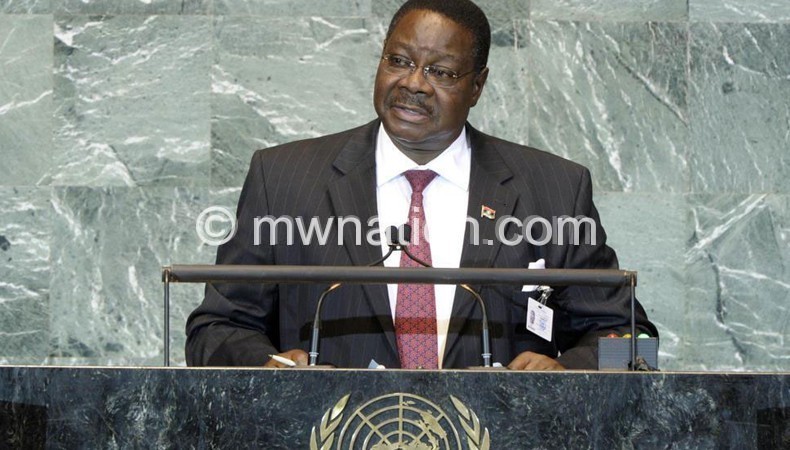Power of incumbency
The more things change, the more they remain the same. With barely two months to the May 20 2014 Tripartite Elections, then president Joyce Banda’s People’s Party (PP) administration announced the promotion of 20 000 traditional leaders.
The move was widely seen as flexing of the muscle that only the power of the incumbency could muster. She lost the election.

Five years later, around the same period, incumbent President Peter Mutharika’s Democratic Progressive Party (DPP) administration yesterday announced the promotion of 20 000 teachers.
Will the move help Mutharika retain the presidency in the May 21 2019 Tripartite Elections?
The answer can only come after May 21, but what is clear is that Mutharika is embracing the power of incumbency to show not what he will do, as his challengers promise, but what he is doing to improve people’s welfare.
The teachers’ promotion comes within a week of promotions at the Ministry of Health as well as the scrapping of tuition and other fees in public secondary schools last year.
The Mutharika administration has also managed to put most chiefs in its corner through patronage and positions that have helped secure loyalty to the ruling party.
Banda’s downfall was a stunning defeat for an incumbent given that when a sitting President faces an opposition challenger in Africa, the opposition wins just 12 percent of the time, according to the Journal of Democracy.
Experts have questioned the timing of the promotion of teachers against a background of demands dating back to 2014 by Civil Society on Education Coalition (Csec) and Teachers Union of Malawi (TUM) for the same.
While welcoming the promotions in an interview yesterday, Csec executive director Benedicto Kondowe faulted government for delaying to effect them. He said some teachers have served in one position for over 20 years.
He said: “We are mindful that there are 40 000 teachers who need to be promoted. These teachers are not supposed to beg for promotions.”
Ernest Thindwa, a political scientist at the University of Malawi’s Chancellor College, said government should regularly promote teachers to avoid raising suspicions of electioneering.
He said: “Ideally, promotions are supposed to be done timely. In the circumstances, certainly we cannot rule out that it has been done in order to get political support from teachers as it is coinciding with general elections.”
But TUM secretary general Charles Kumchenga argued that teachers do not have any problem with timing so long as they have received answers on what they have been seeking for over six years.
Ministry of Education, Science and Technology Principal Secretary Justin Saidi, on his part, defended the timing. He said the promotions have been implemented now because there were processes to be followed.
He claimed that government promotes teachers every four years. However, in 2015, four years back, no teacher was promoted.
Saidi said the promotions were budgeted for; hence, will not have a bearing on bloating the civil service wage bill now at K393.6 billion.
In 2013, a year before elections, about 12 000 teachers were also promoted.
In the latest promotions, 15 491 primary school teachers have been promoted to grades K, J, I and H while at secondary school level 4 719 teachers have been promoted to grades J, I, G and F.
Saidi said the promoted teachers will start receiving their new salaries effective April 2019.
During the campaign period for the May 20 2014 Tripartite Elections, Banda boasted that her administration had promoted about 40 000 chiefs over two-year. However, the promotions backfired as Ministry of Local Government and Rural Administration, following a change in administration, queried the promotions.





